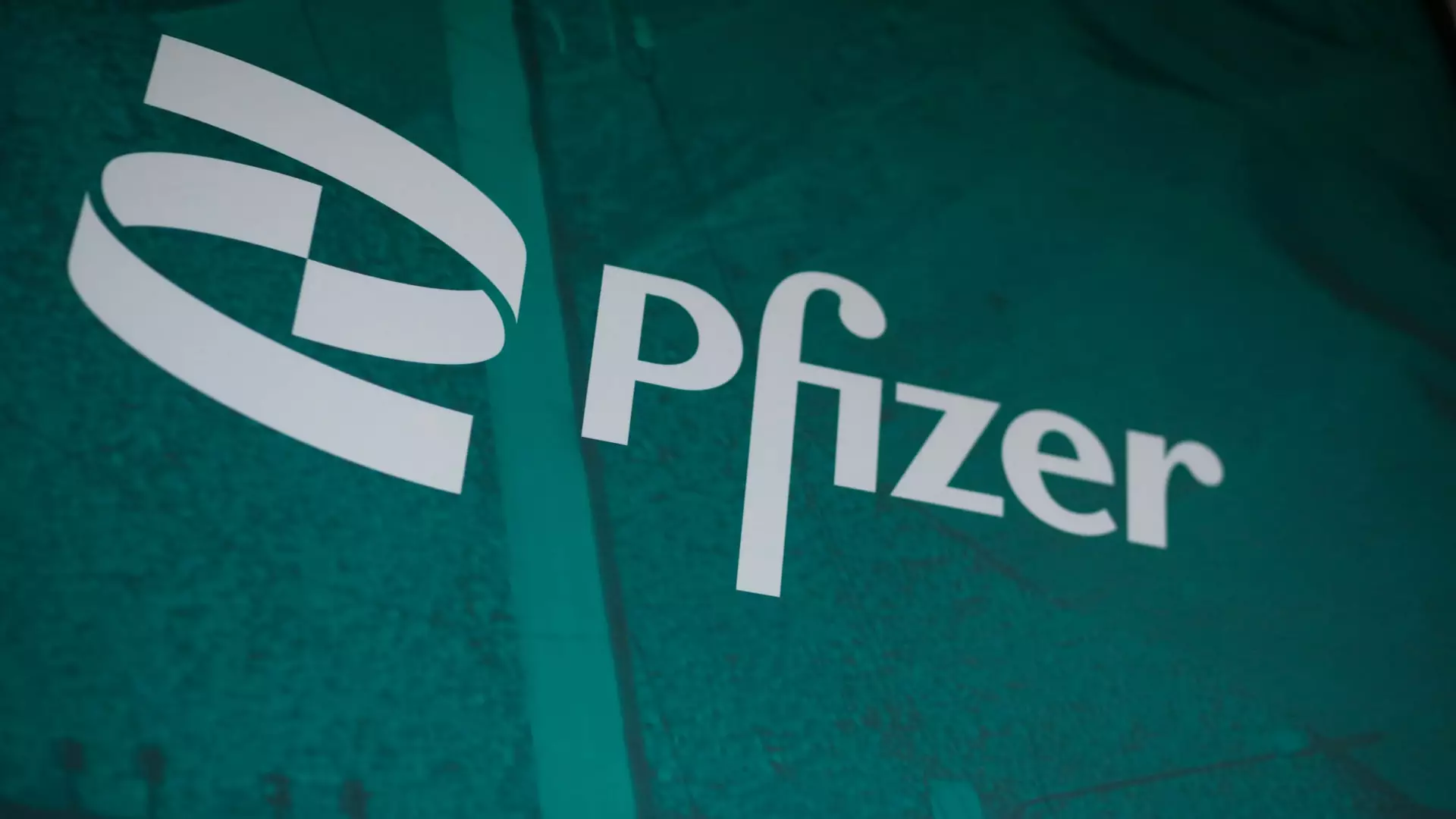Cancer cachexia is a complex and debilitating syndrome that poses a significant threat to cancer patients, exacerbating their conditions and hampering treatment efficacy. This syndrome is marked by severe weight loss, muscle wasting, and a profound decline in appetite, affecting nearly 9 million individuals globally. Alarmingly, around 80% of those suffering from cancer cachexia may die within a year of being diagnosed. The condition is primarily characterized by a weight loss of 5% or more within six months, accompanied by symptoms such as fatigue and reduced functionality, as per guidelines from the National Cancer Institute. Understanding the implications of cancer cachexia is crucial for recognizing the impact it has on treatment response and overall survival rates for cancer patients.
In a significant development, Pfizer has revealed encouraging results from midstage trials of its experimental drug, ponsegromab, designed specifically to combat cancer cachexia. This monoclonal antibody tackles the underlying issues associated with cachexia, namely the disruptions in appetite regulation caused by elevated levels of growth differentiation factor 15 (GDF-15), a protein that affects hunger by binding to specific receptors in the brain. By addressing this critical factor, ponsegromab aims not just to mitigate weight loss, but to enhance the overall quality of life for cancer patients.
The results of the Phase II clinical trial were recently unveiled at the European Society for Medical Oncology (ESMO) 2024 Congress in Barcelona, solidifying Pfizer’s commitment to tackling a rare yet grave aspect of cancer care. Throughout the trial, a cohort of 187 participants suffering from non-small cell lung cancer, pancreatic cancer, or colorectal cancer was carefully monitored. Those administered the highest dosage of ponsegromab—400 mg—demonstrated a remarkable 5.6% increase in weight compared to the placebo group. Lower doses of the drug also yielded positive outcomes, suggesting a dose-dependent response that could inspire further research in dosage optimization.
Implications of the Findings
The trial’s findings not only highlight ponsegromab’s potential to reverse weight loss but also showcase its broader therapeutic benefits. Patients reported improved muscle mass, physical functioning, and ultimately, a better quality of life. The significance of achieving a clinically meaningful weight gain—standardized as over 5%—cannot be overstated in the realm of cancer care; such improvements could lead to enhanced treatment tolerability and an overall uplift in patient wellness. Charlotte Allerton, Pfizer’s head of discovery and early development, emphasized the treatment’s prospective integration into cancer care, aiming to bridge the gap in managing cachexia.
Interestingly, the trial results come with the optimistic outlook of limited side effects, which is pivotal for patient compliance and overall treatment satisfaction. Reported treatment-related side effects were relatively minor, with 8.9% in the placebo group compared to 7.7% in the ponsegromab group. This safety profile strengthens the case for the drug’s approval and use in broader populations.
The Road Ahead: Regulatory Approval and Future Research
As Pfizer moves toward potential late-stage trials, the company is currently engaged in discussions with regulatory bodies to outline the next steps towards achieving final approval for ponsegromab. Plans are in the works to initiate larger-scale studies in 2025, with a vision for the drug to not only gain approval for cancer cachexia but to also explore applications in other conditions, such as heart failure, where cachexia can complicate management.
The scientific community eagerly awaits further insights about ponsegromab’s impact beyond simply combating weight loss. There is hope that its ability to lower GDF-15 levels may unlock new avenues of treatment not only for cancer cachexia but for other chronic diseases characterized by similar appetite dysregulation.
Pfizer’s advancements in the treatment of cancer cachexia mark a promising shift in oncology, underscoring the importance of addressing the multifaceted needs of cancer patients. As more data emerges from ongoing and future trials, the medical community stands poised at the brink of a potential breakthrough in improving patient outcomes for those afflicted by one of cancer’s most challenging complications. By prioritizing patient wellness and functionality, the future of cancer care could be transformed, paving the way for more effective and personalized treatment strategies that genuinely enhance the lives of patients fighting this devastating disease. The hope is that ponsegromab will herald a new era in managing the often-overlooked yet critical dimensions of cancer care, emphasizing the need for a holistic approach in addressing the disease’s broader impacts on patient health and quality of life.

